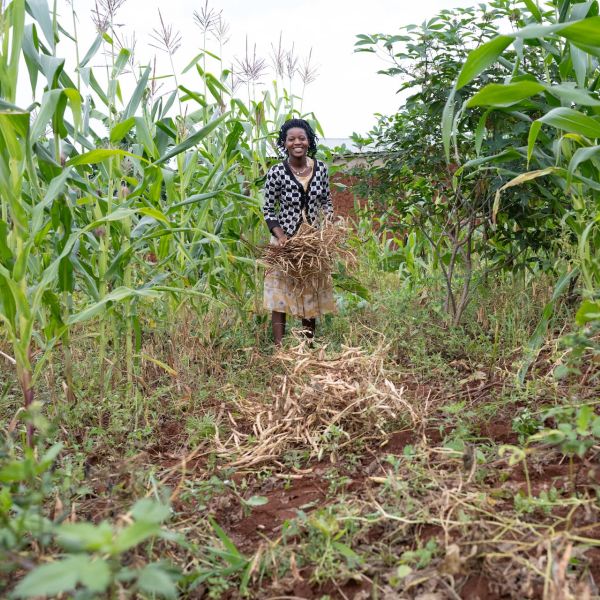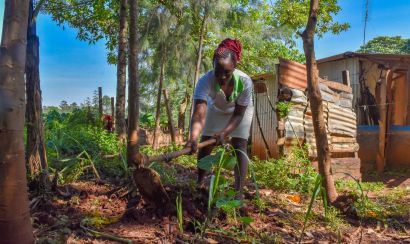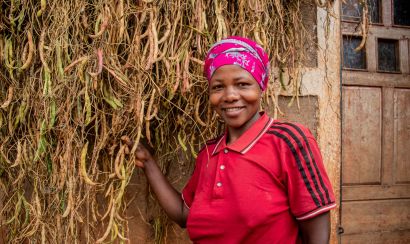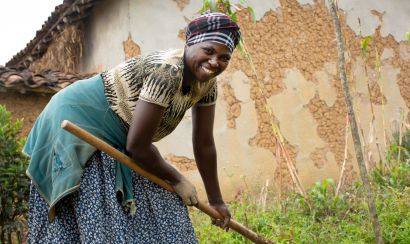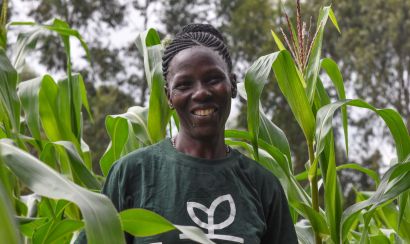Why Empowering Women Farmers is Crucial for Africa’s Agricultural Growth
In sub-Saharan Africa, agriculture contributes 30 to 40 percent of the GDP and employs over two-thirds of the population [World Bank] , with farmers producing up to 80% of the continent's food. Despite this critical importance, Africa’s agricultural production continues to fall behind compared to other regions [World Bank]. Most farmers often grapple with challenges such as limited farm resources, low productivity, limited market access, and environmental pressures.
In Rwanda’s Rwamagana District, agriculture is a way of life. It is here that Alphonsine Musanabera grew up, watching her parents farm for a living but often struggling to provide for the family, harvesting just one bag of maize and one bag of beans—barely enough to meet their needs.

“Life was hard. We only ate one meal per day, which was dinner. When my parents joined One Acre Fund, their harvests increased from one bag to five. I saw the difference and also joined the program when I got married.”
Now aged 24, Alphonsine is following in her parents' footsteps and learning from their experiences. Joining the One Acre Fund program has enabled her to produce enough to feed her growing family and generate a surplus to sell. The proceeds have allowed her to pursue entrepreneurial ventures and contribute to the economic growth of her community.
With Africa’s population expected to grow to 2.5 billion by 2050 [UNECA], the need to boost agricultural productivity is more urgent than ever. Supporting smallholder farmers like Alphonsine with the right tools, resources, and knowledge is critical to this effort.
Equally important is tailoring these programs to address the specific needs of women and youth – like Alphonsine –, offering accessible pathways to prosperity that don’t require extensive prior knowledge or significant start-up capital—both of which can be difficult to access in many cultural contexts. This is crucial, as women and young farmers are often excluded from the resources needed to tap into high-value crop markets, limiting their opportunities for growth and success.
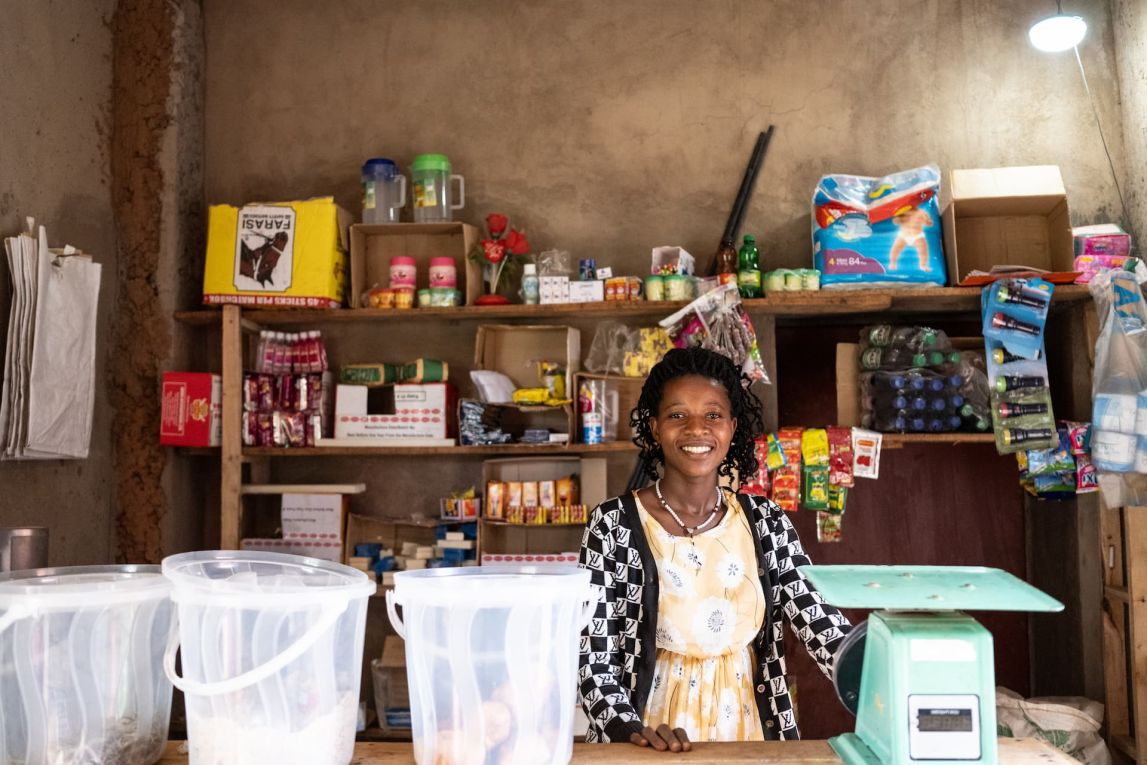
Bridging the gender gap in agriculture
Female farmers like Alphonsine are essential to Africa's food production, yet they often lack the same access to resources as their male counterparts. If women had equal access to these resources, they could increase their farm harvest by 20–30 percent. According to FAO, closing this gender gap in agriculture could boost global GDP by around USD 1 trillion, reduce food insecurity by 2%, lift 45 million people from hunger, and drive economic growth across the continent.
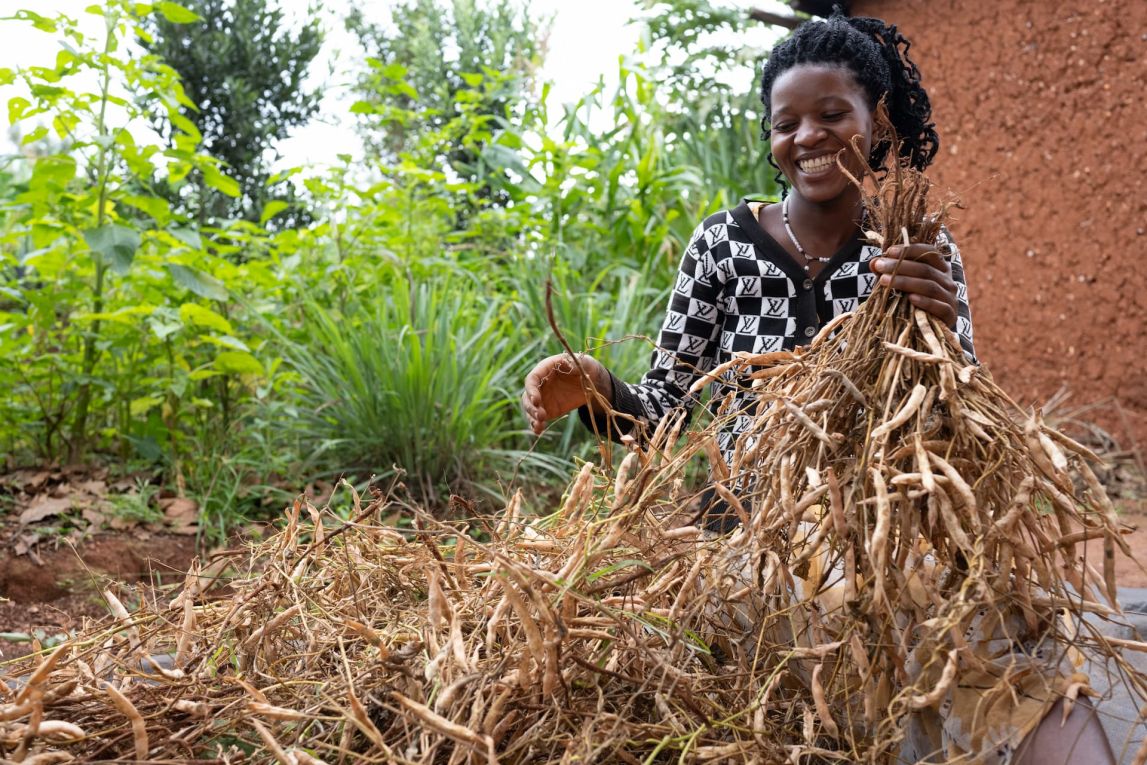
One Acre Fund is working to address this disparity by providing women like Alphonsine with access to financing, high-quality inputs, and effective agricultural training. These resources not only improve food security but also contribute to the development of more resilient and sustainable food systems for everyone. While we are proud of the progress we’ve made, we recognize that more needs to be done to close the gender gap. Research from The World Bank and USAID shows that increasing gender awareness leads to gains in inter-household cooperation, land titling, women’s participation in contractual farming work, productivity in specific value chains, and women’s control over income. We strive to achieve similar outcomes in our programs.
To that end, we are building on these insights with an intentionally inclusive approach that addresses the unique needs of women and youth across our countries of operation. Our program, which has always focused on serving those excluded by formal financial systems, is evolving to ensure we not only reach underserved populations but also tailor our support to their specific challenges. For instance, our land titling partnership with Landesa in Rwanda and Kenya is helping women to secure land ownership, giving them greater control over their livelihoods. Additionally, we are running gender-focused radio campaigns in Rwanda to raise awareness about the importance of women’s involvement in household decisions related to finances and food consumption.
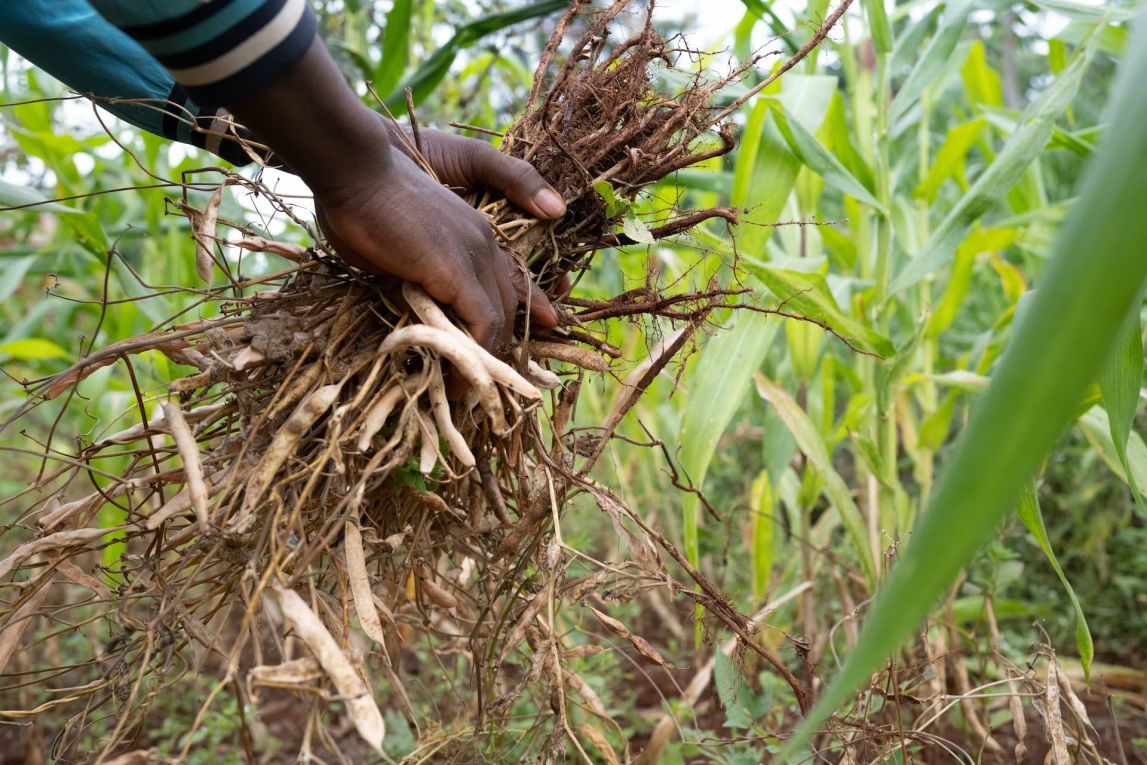
Opening new markets and economic opportunities
When farmers increase their productivity, they can meet their families’ food needs and often find themselves with extra produce to sell. This surplus boosts income, allowing them to address other essential household needs like school fees or even explore entrepreneurial ventures.
Since joining One Acre Fund, Alphonsine has been saving the extra income she gets from selling her surplus harvest, amassing 300,000 Rwandan francs ($223 USD) by 2023. These savings helped her start a shop in her community.

“Because I have food at home, I don’t rely on this shop to feed my family. The profit from the shop helps me increase my business capital. The more I increase the capital, the more profit I make.”
Addressing the challenges faced by women farmers like Alphonsine is key to strengthening smallholder agriculture. This effort holds powerful potential to boost productivity, improve food security, and promote economic and environmental sustainability across Africa.
Invest in Farmers, Invest in the Future
By supporting our work, you are investing in a future where smallholder farmers can realize their full potential, build resilience, and create lasting prosperity for themselves and their communities.
